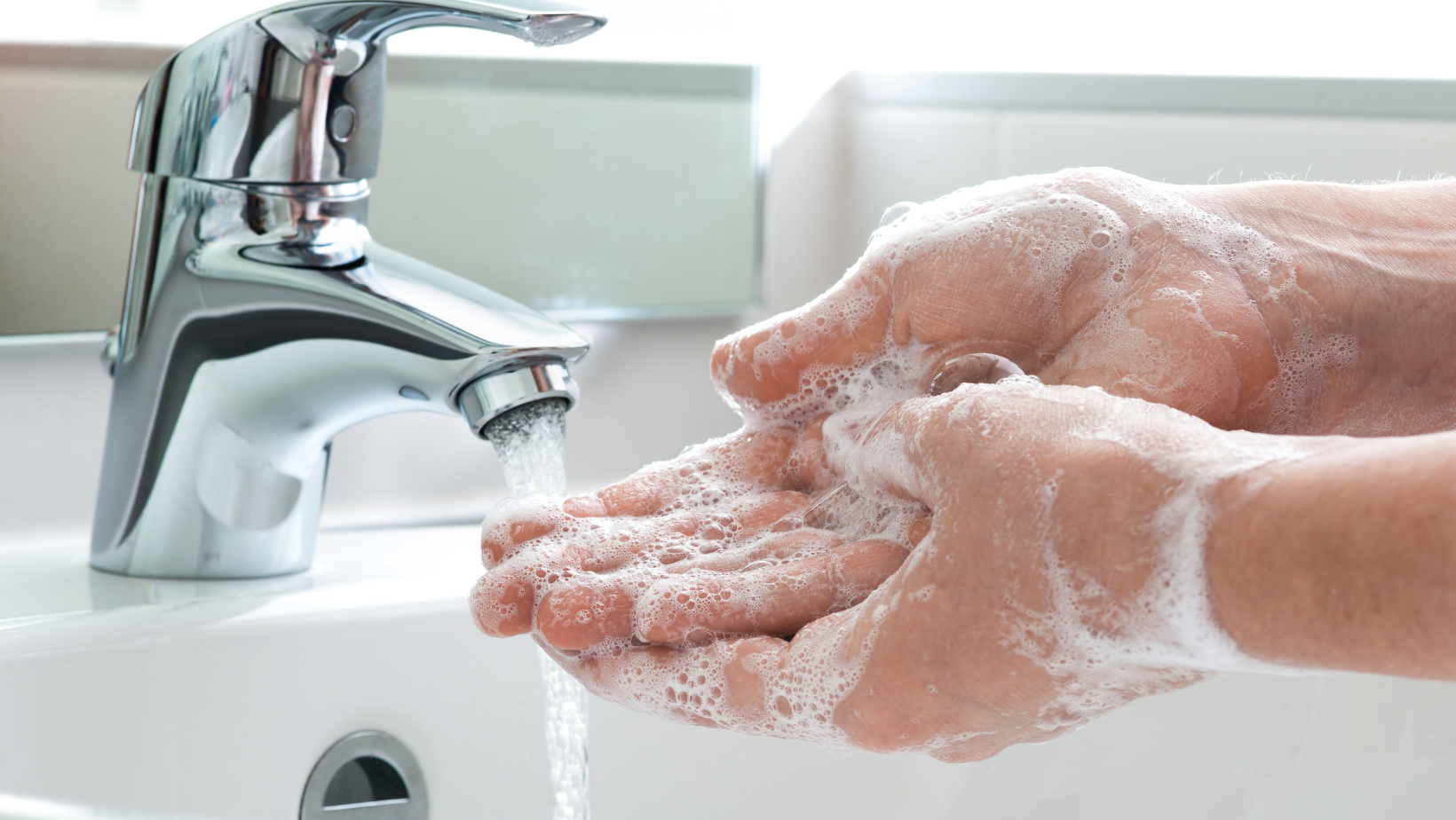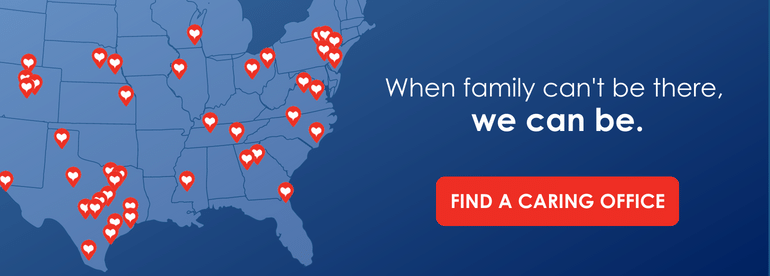Do you know one of the easiest ways to help prevent illness? Washing your hands! This seemingly simple task can help you rid your hands of germs and keep yourself and your loved one from getting sick. Here are some compelling reasons why you should wash your hands and guidelines for proper hand hygiene.
Why Hand Washing Is Important
We use our hands and fingers to do a lot of different tasks. Open the door, change the channel on the TV, prepare food, cover a sneeze. As we go throughout our day, our hands come in contact with germs (bacteria and viruses) that can cause illness — like the flu, salmonella, colds, and COVID-19. If not cleaned off, those germs could get into our own bodies through the mouth, nose, eyes, cuts, etc., or they could spread to others.
If germs enter the body, it’s up to the immune system to fight them off. But, even if you have a healthy immune system, you could still get sick. Or you could carry the germs to your loved ones who are at a higher risk of getting sick, like young children, seniors, or individuals with weakened immune systems. If they get sick, they could face serious health complications.
So, it’s best to always be safe and wash your hands with soap thoroughly.
RELATED CONTENT: 5 Ways to Prevent the Common Cold
When to Wash Your Hands
There is no set limit to the number of times you wash your hands each day. The average American washes their hands about 8 times per day. But you may need to wash your hands more depending on your occupation, health, or daily activities.
Generally, you should wash your hands thoroughly in each of the following situations:
- Before, during, and after preparing food
- After using the restroom
- After changing diapers
- Between handling raw food and cooked food
- Before and after eating
- After sneezing, blowing your nose, or coughing
- After working outside
- After touching animals, animal feed, or animal waste
- After being around individuals who are sick
- After touching garbage or taking out the trash
- After touching surfaces that may be high in germs (like door handles, gas pumps, electronic registers, shopping carts, etc.)
- Before and after putting in or taking out contact lenses
- After treating a cut or wound
This is just a general guideline of when you should wash your hands. There are, of course, a number of other scenarios when you should clean your hands thoroughly. And if you are ever wondering whether to wash your hands, it’s best to be safe and wash them
Proper Hand Hygiene
To get germs off your hands and prevent the spread of germs to others, it’s important that you wash your hands the right way. Here are the proper steps you should take.
- Wet your hands with clean water.
- Apply soap.
- Lather your hands by rubbing them together with the soap. Make sure to get between your fingers, around your wrists, and under your nails.
- Scrub your hands for 20 seconds. (Or longer if your hands are still visibly dirty.)
- Rinse your hands with clean water.
- Dry your hands using a clean towel or air dry them.
RELATED CONTENT: How to Prevent Pneumonia at Home
PRO Hand Washing Tips
- If you can, remove your rings, watches, and other jewelry before washing your hands. That will help ensure that you get all the germs. However, this isn’t always practical. So do the best that you can to wash under your jewelry if you cannot remove it.
- Use liquid soap over bar soap when you can because bar soap may contain some environmental germs. However, both can be effective
- If soap and water are not available, use hand sanitizer with at least 60% alcohol per CDC guidelines.
- Washing your hands with clean, running water is always better than using clean water out of a basin. Standing water has a higher chance of becoming contaminated.
- There really isn’t an advantage to using antibacterial soap. All soaps are effective at eliminating the germs that could cause disease and illness.
- The temperature of the water doesn’t impact how clean your hands get. Warm water may help the soap lather more easily, but both are effective.
By following these steps, you can help keep you and your loved ones from getting sick — especially during the winter months, when illnesses are more easily spread. For more information on keeping seniors safe and healthy, reach out to your local Caring Senior Service.


